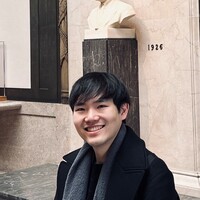The Function and Limitation of the Korean American Association of Greater Philadelphia 1989 - 2000
It has been nearly 60 years since the Hart-Celler Act of 1965 that started the immigration boom of Koreans to the United States. At the peak of this boom, 30,000 Korean immigrants came into the United States every year, which resulted in 1.9 million Korean Americans living in the United States today. Philadelphia is no exception. Since the 1960s, there has been an active Korean American community represented by the Korean American Association of Greater Philadelphia (KAAGP). This project hopes to add to the growing field of Korean American studies by not only providing a new case study at a location that not many scholars have dealt with, but by introducing a historian’s perspective on a field that has been dominated by anthropological and sociological studies.
During the summer, I worked with the KAAGP to document and catalogue the internal documents of the association. The documents were organized based on their time of creation, catalogued, and digitized for the association’s archive and future research purposes. These documents include, but are not limited to, meeting minutes from temporary and regular trustee meetings, speeches of the presidents, incoming and outgoing letters, fax records, tax records, and newspaper clippings. In total, I scanned and categorized roughly 200 documents during the duration of this project.
The analysis of the documents revealed that the story of the KAAGP is a representation of the story of the first-generation Korean immigrants. Their internal documents revealed how the Korean community tried to gain the recognition of both the governments of South Korea and the United States. It also showed their growing understanding of the importance of political representation in the United States. Their correspondence with the city of Philadelphia shows how the KAAGP, and by extension the Korean community, tried to navigate the political landscape of their newfound home.

Comments